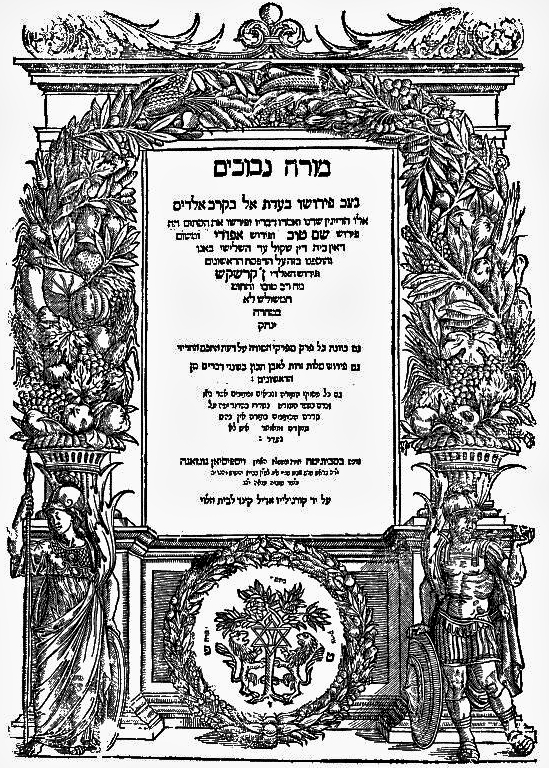
Jewish ethics
Jewish ethics is the ethics of the Jewish religion or the Jewish people. A type of normative ethics, Jewish ethics may involve issues in Jewish law as well as non-legal issues, and may involve the convergence of Judaism and the Western philosophical tradition of ethics.[1]
Central virtues and principles[edit]
Major themes in biblical ethics[edit]
The writings attributed to the biblical prophets exhort all people to lead a righteous life. Kindness to the needy, benevolence, faith, compassion for the suffering, a peace-loving disposition, and a truly humble and contrite spirit, are the virtues which many Prophets hold up for emulation, although Samuel and Moses were important exceptions, for Samuel urged the massacre of all Amalekites, including women and children, and Moses, concerning the Midianites, said "Now therefore kill every male among the little ones, and kill every woman that hath known man by lying with him. But all the women children, that have not known man by lying with him, keep alive for yourselves."[4]
Civic loyalty, even to a foreign ruler, is urged as a duty (Jer. 29:7). "Learn to do good" is the keynote of the prophetic appeal (Isa. 1:17). Prophets yearn for an era of peace and righteousness; war will be no more (Isa. 2:2 et seq.).
Summaries of classical rabbinic ethics[edit]
Hillel the Elder formulated a version of the Golden Rule: "What is hateful to you, do not do unto others".[5] Rabbi Akiva stated "Whatever you hate to have done to you, do not do to your neighbor; therefore do not hurt him; do not speak ill of him; do not reveal his secrets to others; let his honor and his property be as precious to you as your own".[6]
Rabbi Akiva also declared the commandment "thou shalt love thy neighbor as thyself"[7] to be the greatest fundamental commandment of the Jewish doctrine (compare to Great Commandment). Ben Azzai, in reference to this, said that a still greater principle was found in the Scriptural verse, "This is the book of the generations of Adam [origin of man]. In the day that God created man [Adam], in the likeness of God made he him".[8]
Rabbi Simlai taught "613 commandments were given to Moses; then David came and reduced them to eleven in Psalm 15; Isaiah (33:15), to six; Micah (6:8), to three: 'To act justly and to love mercy and to walk humbly with your God'; Isaiah again (56:1), to two: 'Maintain justice, and do what is right'; and Habakkuk (2:4), to one: 'The righteous person lives by his faithfulness'."
Justice, truth, and peace[edit]
Rabbi Simeon ben Gamaliel taught: "The world rests on three things: justice, truth, and peace".[9]
Justice, being God's, must be vindicated, whether the object is of great or small value.[10] "Let justice pierce the mountain" is the characteristic maxim attributed to Moses.[11] Stealing and oppression, even if only in holding back overnight the hired man's earnings, are forbidden.
Falsehood, flattery, perjury and false swearing are also forbidden. The reputation of a fellow man is sacred.[12] Tale-bearing and unkind insinuations are forbidden, as is hatred of one's brother in one's heart.[13] A revengeful, relentless disposition is unethical; reverence for old age is inculcated; justice shall be done; right weight and just measure are demanded; poverty and riches shall not be regarded by the judge.[14] We are taught to attempt judging others LeKaf Z'Chut, giving more weight to an assumed side of merit, yet advised what can be translated as Respect but Suspect (ChabDeiHu VeChashDeiHu).[15]
Shalom ("peace") is one of the underlying principles of the Torah, as "her ways are pleasant ways and all her paths are shalom ('peace')." Proverbs 3:17 The Talmud explains, "The entire Torah is for the sake of the ways of shalom".[16] Maimonides comments in his Mishneh Torah: "Great is peace, as the whole Torah was given in order to promote peace in the world, as it is stated, 'Her ways are pleasant ways and all her paths are peace.'"[17]